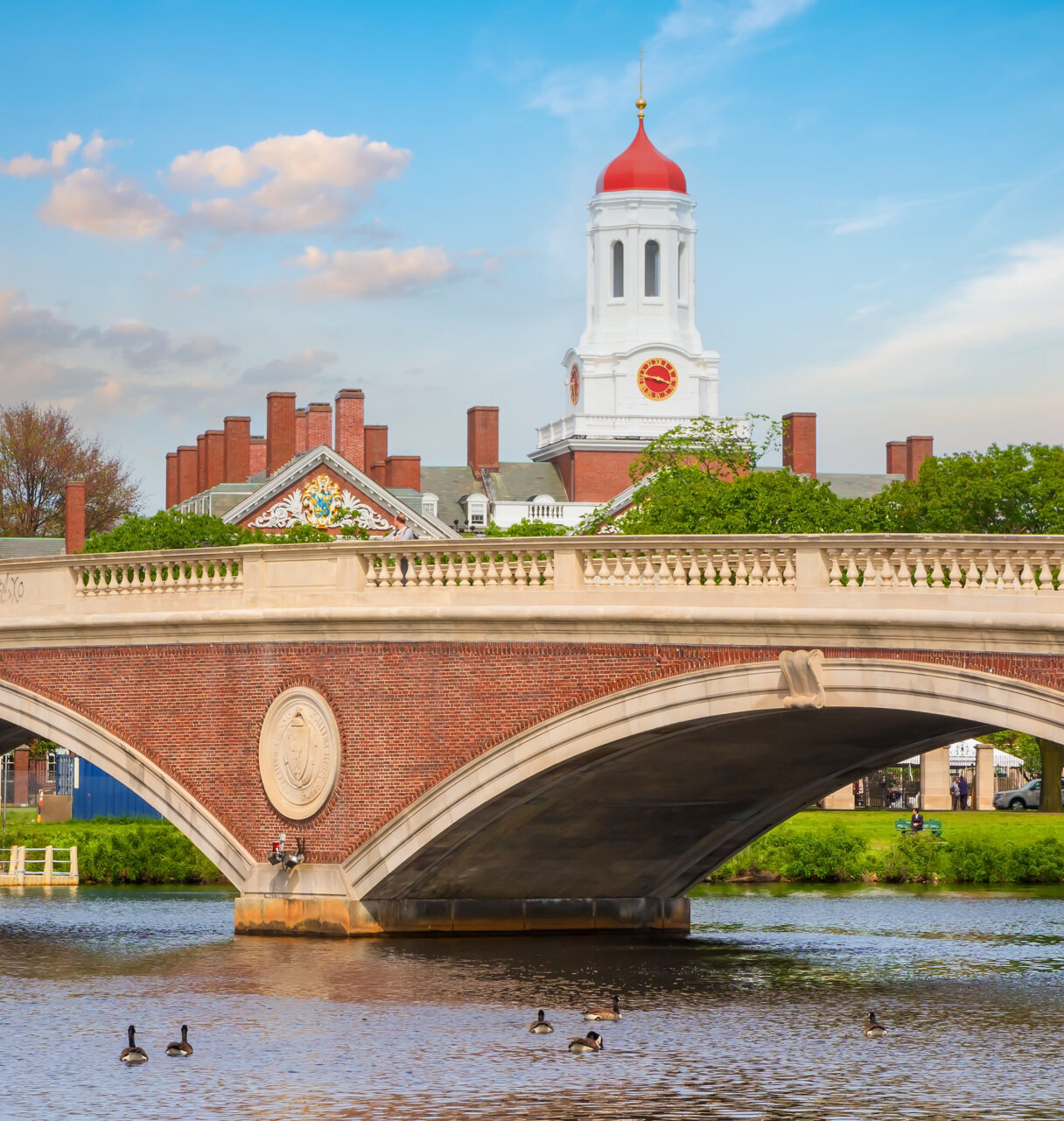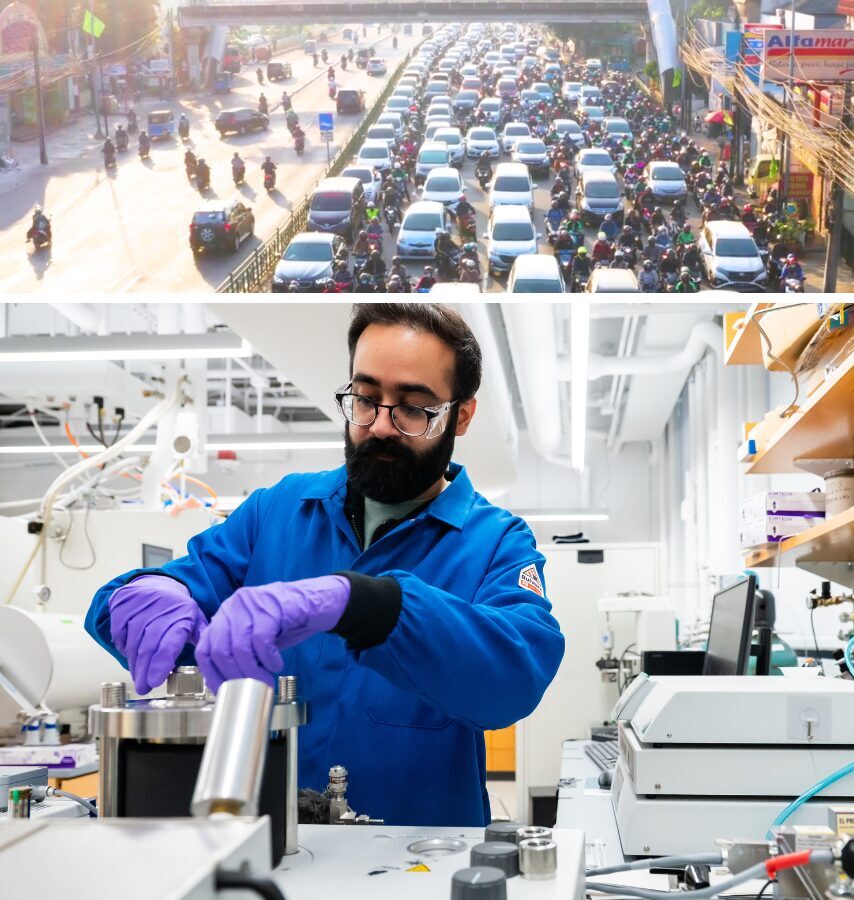Supreme Court hears pivotal regulatory challenge with sweeping climate implications
On January 17 the Supreme Court will hear arguments in a case that threatens to weaken the Environmental Protection Agency by restricting its decision-making authority.
On the surface, this is a dispute about fishing: The Magnuson-Stevens Fishery Conservation and Management Act, first passed in 1976, allows the government to require commercial fishing vessels to carry onboard observers to monitor conservation efforts. The agency that implements the law, the National Marine Fisheries Service, says the fishing industry should pay for the observers after the federal government pays to train them. A group of herring fishermen in New Jersey, Loper Bright Enterprises, says the regulator is overreaching.
But the stakes are much bigger than herring and the power of this one agency.
Loper Bright Enterprises v. Raimondo hinges on whether decisions over how to implement the nitty-gritty of federal law should be made by the courts, or – as determined by a 1984 Supreme Court ruling known as Chevron – by expert federal agencies accountable to both Congress and the president. That ruling, a loss for environmentalists at the time, involved a reading of the Clean Air Act by the Reagan-era EPA that was “helpful to business” and “viewed as a flexibility-enhancing interpretation, a deregulatory, business-friendly interpretation,” says Jody Freeman Archibald Cox Professor of Law and Director of the Environmental and Energy Law Program at Harvard Law School.
The Supreme Court adopted a principle in this case known as Chevron “deference” because it requires courts to defer to expert federal agencies such as the EPA, the Food and Drug Administration, and the Securities and Exchange Commission when they interpret ambiguities and gaps in regulatory laws. The ruling gives agencies the benefit of the doubt – deferring to their institutional and subject-matter expertise. Were Chevron overturned, federal court judges would become embroiled in resolving every interpretive question that agencies face. Striking down Chevron could give rise to countless court challenges, rippling throughout the federal government.
A decision – to scrap, weaken, or uphold Chevron – is expected later in the spring.
Freeman recently hosted a podcast to discuss the case and its implications with Andrew Mergen, Faculty Director of the Emmett Environmental Law and Policy Clinic, also at Harvard Law School.
The following excerpts are drawn from their discussion.
What is the significance of Chevron deference?
Mergen: “Underlying the doctrine is the notion that an agency has some particular expertise and might be in the best position to fill the gaps left by Congress, or to answer questions about ambiguities.”
Freeman: “The Court established a two-part test in the Chevron case, where it said, ‘Look, if Congress has addressed the precise interpretive question, what the statute means, then that interpretation governs. If Congress has not addressed the precise question at issue,’ and by that, the Court means if Congress has been ambiguous or silent, ‘Then the agency gets deference for its reasonable interpretations.’”
Why is Chevron deference relevant in Loper Bright Enterprises v. Raimondo?
Freeman: “It established this principle of allowing agencies to have some interpretive flexibility in the face of ambiguous statutes. … If courts decided for themselves every single interpretive question that an agency could possibly face, it would really be impossible for agencies to do their jobs.”
Mergen: “There’s no dispute that the [Magnuson-Stevens] statute authorizes the placement of observers in fisheries. But there’s no specific provision in the law that says, ‘Yes, industry can be required in some instances to pay for these onboard observers.’”
Chevron, “doesn’t require judges to be experts. It allows judges to take a look at what the agency has done, and, informed by the agency’s own expertise, to make a judgment about whether or not the agency’s action is reasonable.”
When Chevron won in 1984, it was seen as a victory for the Reagan administration. Who stands to ‘win’ if Chevron is overturned?
Freeman: “The idea is there’s a little guy here being trampled on by the overreaching federal government … that the administrative state is dangerous to start with, and that the people most likely to use it to actually accomplish some kind of agenda to regulate the private sector are likely to be Democratic administrations. If you kill Chevron, if you kill the idea of deferring to those agencies, you’re really disadvantaging the pro-regulatory Democrats.”
Freeman: “Several of the Justices have made very clear that they would like to overturn Chevron, that they think that it’s for courts to decide what the law means in all instances, no deference to the agency.”
Mergen: “The people who care the most about the demise and elimination of the Chevron doctrine are big businesses and highly regulated industries, because their goal is to render the regulators as toothless as possible. They understand that Congress can’t possibly do the fine-grained analysis, as we’ve talked about, that EPA and other regulators have an important role to fill in terms of applying their expertise to Congress’s goals, aspirations, intent, statutory language. … The more you weaken the regulators, the more freedom you have from regulation.”
Does either party benefit from Chevron?
Freeman: “If we take the view that the experts should decide, the EPA should decide, the Department of the Interior should decide, whatever the regulatory agency is, the Securities and Exchange Commission should decide – if that’s our view, that ought to favor whatever administration happens to be in power at the time.”
Why does it matter if regulatory nitty-gritty is decided by courts rather than agencies?
Mergen: “[Chevron] is a profoundly important tool for the lower courts, to get their handle on issues that they’re confronting every day from agencies. It’s a really, really important framework for promoting stability and rule-of law-values. I think we would lose a lot if we were overturning Chevron. … We don’t know whether the Court will overturn, or, as the petitioners ask in the alternative, just constrain the doctrine.”
Freeman: Take the example of “the Food, Drug, and Cosmetic Act, which says that the FDA has to determine which drugs are safe and effective. That’s a determination that Congress delegates to the agency. The agency’s got to figure out what’s safe and effective. We don’t expect Congress to make every fine-grained decision to implement a statute. It delegates authority to the agency.”








